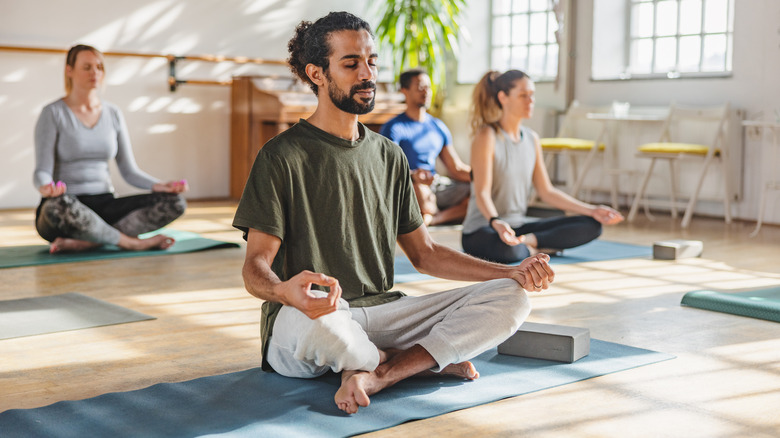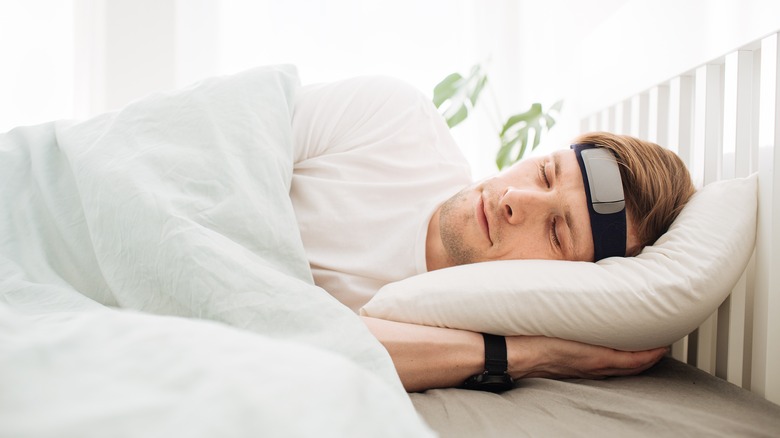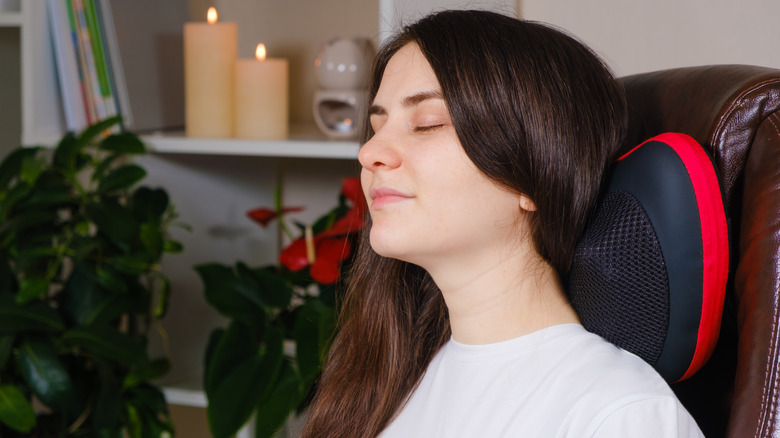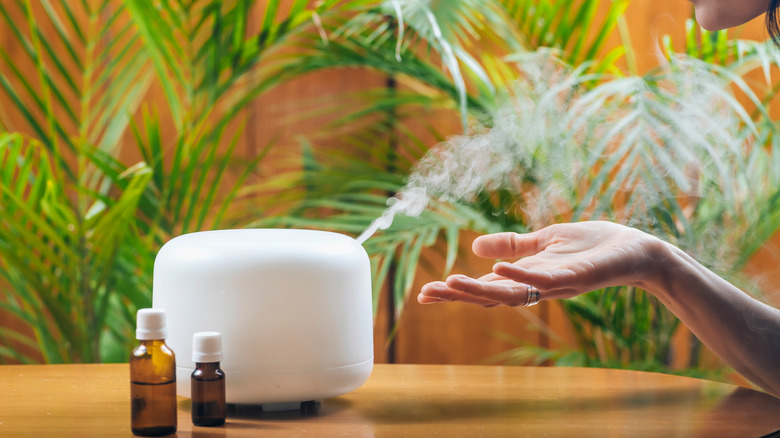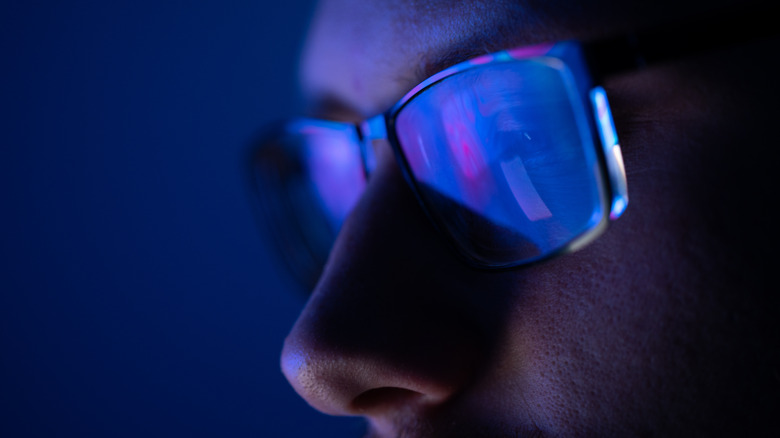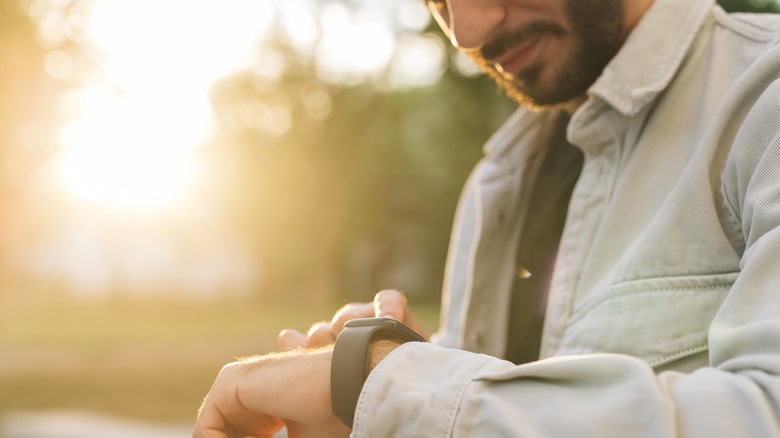5 Gadgets That Can Help You If You Struggle With Anxiety
The rates of adults suffering from depression and anxiety in the United States rose an astonishing 29% between 2015 and 2023, according to a Gallup poll. Nearly four in 10 individuals older than 15 suffer from depression or anxiety or have a friend or family member who does. This has prompted people all around the world to prioritize their mental health. Everybody manages their anxiety a little differently than others. Some go to therapy or join a support group, while others practice meditation or take up yoga. However, an overwhelming number of people turn to technology.
Smartphones and various wearables provide a number of features to check heart rate or track sleep patterns now. While not everyone is fortunate enough to have an iPhone that can gauge their anxiety levels, there are plenty of other gadgets out there that can make life easier in 2024. Many devices on the market do more than merely track heightened stress; they now offer mechanisms for users to take matters into their own hands and help them manage their anxiety, improving their overall health.
The Muse Headband helps with more than meditation
The Muse headband is a wearable that uses electroencephalogram (EEG) technology to improve and track the user's brain activity, posture, heart rate, breathing, and sleep. Medical professionals use EEG technology all around the world to study brain function and cognitive processes. Muse's headband non-invasively measures brain signals with seven finely tuned EEG sensors located near the forehead and ears. It helps users learn their body's cues for stress or lack of focus, teaching them how and when to adjust on their own.
While many use the headband to help improve their focus, it is also one of the most accurate sleep trackers on the market for those interested in identifying sleep issues. Pair the headband with the Muse app to see easy-to-read graphs that help users interpret their sleep patterns. It also assists with relaxing the mind, using responsive audio to lull the brain to sleep, which also works if the user wakes up in the middle of the night.
A shiatsu massage pillow that brings the heat
Nothing is more popular than a nice massage when in dire need of some physical relaxation. Some massage pillows, such as the one Homedics makes, come with an added heat feature that promises to ease tension and tend to any aches. When it comes to anxiety, a shiatsu massage is the exact massage anyone wants. It's a Japanese-style massage that relieves stress and tension, promoting emotional and physical relaxation. In fact, one study from 2019 found that shiatsu therapy can improve quality of life.
Massage pillows are small and light, making them portable and a must-have on any vacation, especially at the end of a long day exploring tourist traps. If tension isn't built up in the shoulders, back, or neck, massage pillows are versatile devices that bend to most body contours, working just as well on legs, abdomens, feet, and even the lower back.
A calming pod for all your calming needs
A standard go-to product for those conscious of their mental well-being is essential oils. They're proven to reduce anxiety, which is why a calming pod or diffuser is essential for those suffering from stress. Some diffusers simply burn the oil to release their fragrance into the atmosphere. However, there are many brands, such as Neom, that create diffusers to do more. They simultaneously humidify and purify the home's air while diffusing the oils into a scented vapor.
Many diffusing pods light up in different colors, allowing users to customize the ambiance of the room it's in. This helps create a stress-free environment. It's important to note that no regulatory agency in the United States certifies or approves the purity and quality of essential oils. So, it's important to speak with a healthcare professional and research a brand's quality before using essential oils.
Block out that blue light
Blue light is the silent inducer of anxiety and the number one reason everyone should stop using their Android phone before bed. While it doesn't directly instill anxiety in people, studies have proven it disrupts sleep by slowing the release of melatonin. Anyone who has had a lousy night's sleep can attest that it leads to raised levels of anxiety. In an ideal world, everyone would turn off their televisions, computers, and phones an hour or two before going to bed, which would solve many sleep issues. Unfortunately, what's ideal isn't always realistic. That's where blue light-blocking glasses come in.
There are a multitude of companies out there selling glasses with blue light filters. Some manufacture glasses with clear lenses, while others provide a variety of colors for their lenses. They all tend to have the same impact, which is blocking out blue light. However, the Block Blue Light company boasts amber lenses as the best for lowering stress and anxiety as well as blocking out 100% of the blue light. For those sitting in front of a screen for hours on end, investing in blue light-blocking glasses might do wonders for sleep and anxiety.
The Apollo wearable will make you as fit as a Greek god
Wearables are ideal for those constantly on the go who don't have time to sit down and take a breath. Apollo had multiple physicians and neuroscientists develop its wearable that not only helps relieve the constant weight of stress but also improves the wearer's health. It uses silent vibrations that the company claims will help with safety and control, removing the wearer from a fight or flight mode. It's a flexible device users can wear on their wrists or ankles. Furthermore, if they're not a fan of the wristband, it comes with a clip that they can attach to their clothing.
The Apollo wearable connects to the Apollo Neuro app, where different settings are available depending on the user's goals. It's proven to help with sleep, stress, focus, energy, and socializing. The battery can handle up to eight hours of continuous use, but users can adjust the settings so it's not active all day. According to Rolling Stone, the full effects of the wearable won't be felt unless it's used for two hours a day for 30 continuous days.
